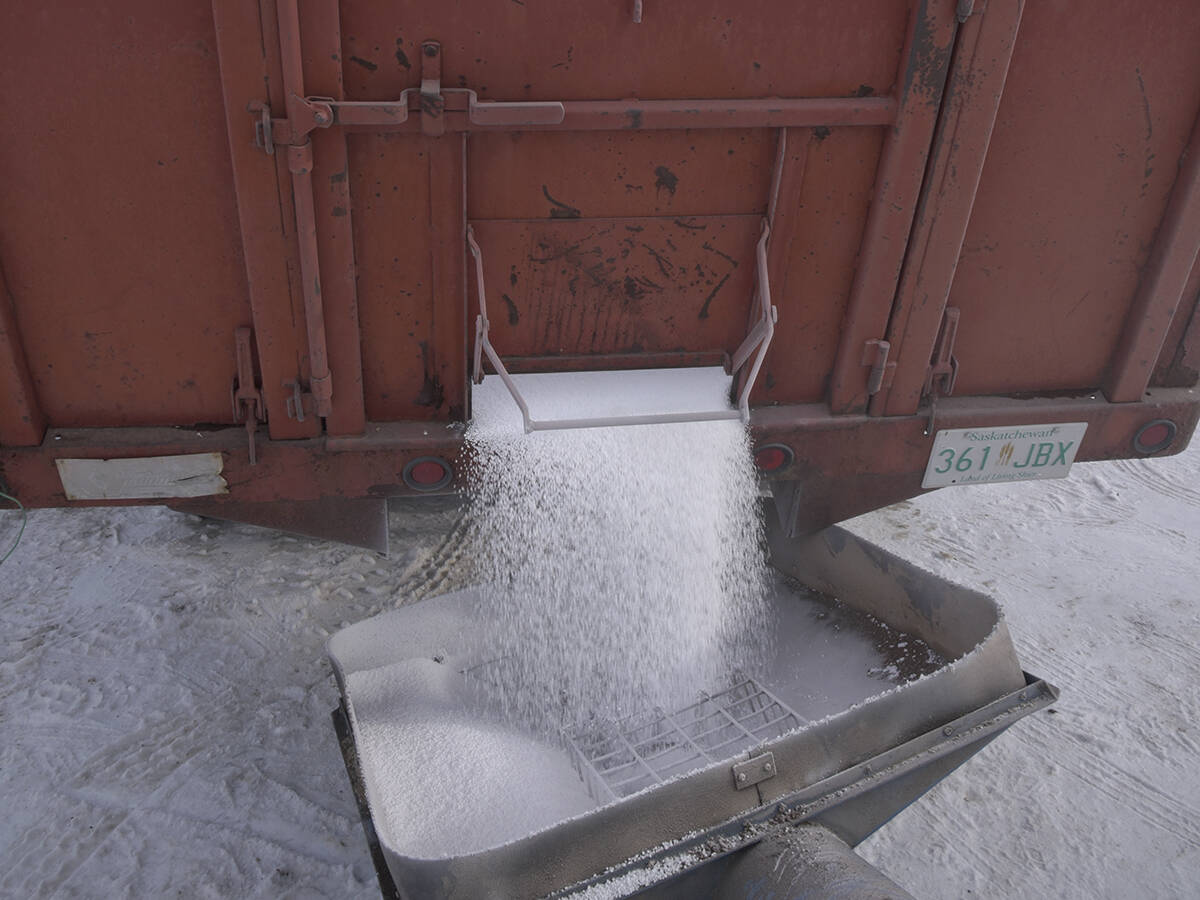The biodiesel industry has passed all the required on-road and off-road demonstration tests needed to implement a national mandate, says the Canadian Renewable Fuels Association.
When the federal government first announced its intention to require two percent renewable fuel content in diesel fuel, it stipulated biodiesel would first have to pass a series of tests under a range of conditions.
The technical feasibility studies have included an on-road, cold-weather test of the fuel in Alberta trucking fleets as well as a number of off-road tests in the forestry, construction, defence, marine, mining and rail industries.
Read Also

Urea prices heading higher: analyst
A fertilizer market analyst thinks urea prices have bottomed out and are heading higher through the first quarter of 2026.
The latest results released by the Saskatchewan Research Council show that biodiesel blends work well in agricultural equipment.
Eight producers from the Foam Lake, Sask., area used a variety of biodiesel blends in 72 pieces of agricultural equipment between August 2009 and November 2010.
The farmers used more than 30,000 litres of pure biodiesel during 18,000 hours of use in their tractors, combines and other equipment.
“This demonstration project has confirmed that canola-based biodiesel blended with ultra low sulfur diesel fuel can maintain its fuel quality during storage, can be used seamlessly by the farm community without making any changes to their operations and does not cause any operability issues for farmers or distributors of this fuel,” said Grant McVicar, director of energy conservation at the SRC.
Gordon Quaiattini, president of the Canadian Renewable Fuels Association, said Natural Resources Canada has written a summary of the demonstration projects that it has shared with Environment Canada.
While he is not privy to that document, he has seen the results from the individual projects and said it bodes well for the industry.
The federal government originally said a biodiesel mandate would be introduced no later than 2012 if the technical feasibility tests were successful.
However, federal agriculture minister Gerry Ritz has since indicated on a couple of occasions that it would happen sometime in 2011.
The Canadian Renewable Fuels Association is lobbying for an April 1, 2011, start date with the first compliance period ending Dec. 31, 2012, which would coincide with the end of ethanol’s first compliance period.
The group argues that any delay beyond April 1 will jeopardize existing biodiesel capacity and slow the construction of additional plants.
There isn’t much existing capacity to speak of. Since the announcement of Ottawa’s ecoEnergy for Biofuels program in 2007, no industrial scale biodiesel facility has been built in Canada.
Natural Resources Canada recently announced it has identified 23 biofuel projects that will receive the remainder of operating incentives left in the $1.5 billion ecoEnergy for Biofuels program.
The department is not announcing the successful applicants until cont ribution agreements are signed, but Quaiattini said a good number of them will likely be canola biodiesel plants destined for Western Canada.
Natural Resources Canada said the latest round of funding will pay for a maximum of 526 million litres of new biodiesel production and 646 million litres of ethanol.
But before construction takes place, the proposed plants want to see a firm date set for the mandate.















